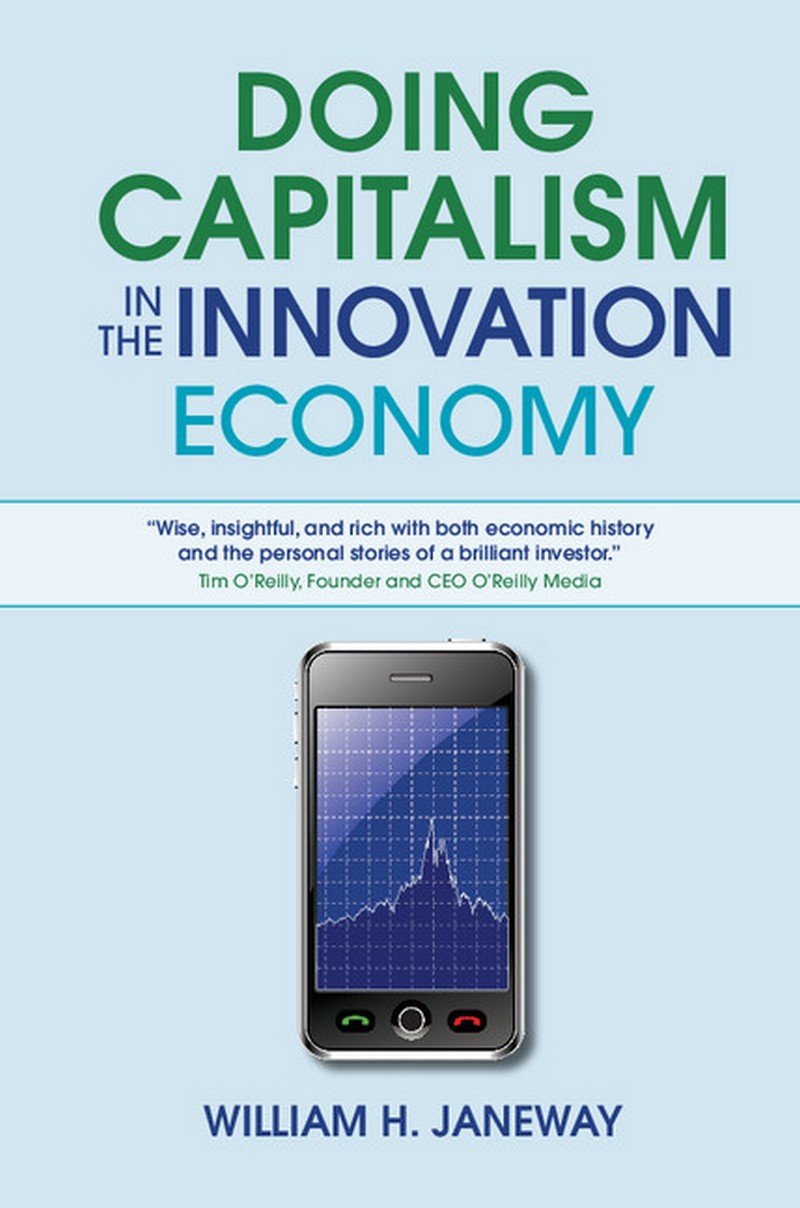Found in 2 comments on Hacker News
acjohnson55 · 2013-11-19
· Original
thread
Doing Capitalism in the Innovation Economy by William Janeway (http://www.amazon.com/Doing-Capitalism-Innovation-Economy-Sp...) is not a history book per se, but it does contain a pretty thorough survey of bubbles and busts over the past several hundred years. It also contains a lot of history on the investment sector of the economy over the 20th century, and the rise of venture capital over the past 40 years. It's a challenging read, but very rewarding.
acjohnson55 · 2013-10-08
· Original
thread
As so many things do, this reminds me of one of the more insightful books I've ever read: http://www.amazon.com/Doing-Capitalism-Innovation-Economy-Sp...
Among many other things, the author, Bill Janeway, stresses that in his decades of experience in the venture investment world the only reliable rule he knows in that world is that cash and control are the only hedges against the inherent uncertainty of new ventures.

